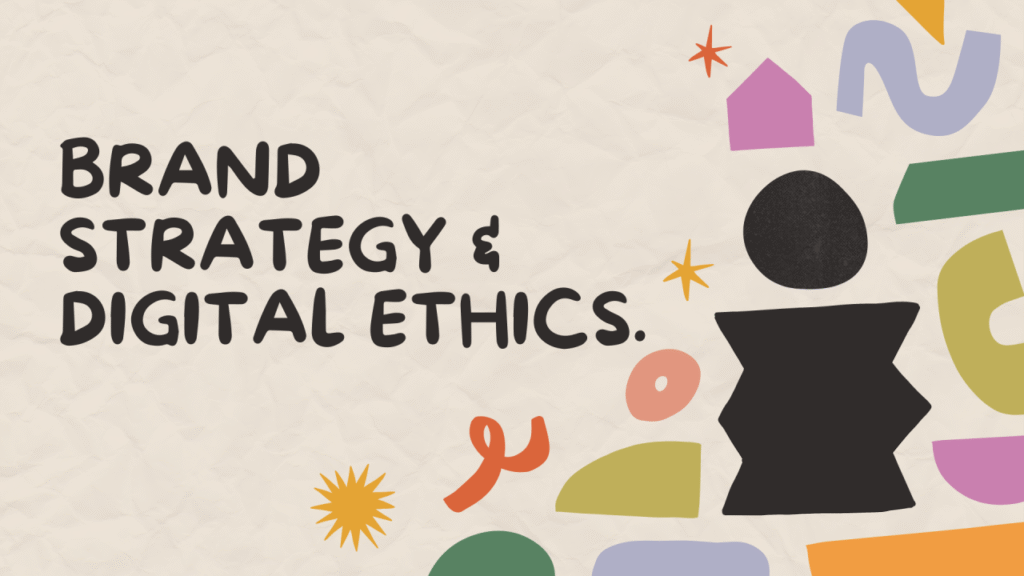Celebrity Greenwashing Claims Ignite Digital Ethics Debate
7 min read
The digital landscape is once again buzzing with a heated debate surrounding celebrity endorsements, brand authenticity, and the precarious tightrope of public perception, following a recent social media controversy involving prominent public figure Mira Rajput Kapoor. Her call to curb Diwali firecrackers, intended as an environmental advocacy stance, ignited a significant backlash from netizens who swiftly accused her of hypocrisy, highlighting perceived inconsistencies between her public messaging and private lifestyle. This incident has reignited critical conversations around Digital Ethics Celebrity Backlash and the profound impact such events have on brand reputation and consumer trust.
The Blazing Fuse: Mira Rajput Kapoor and the Greenwashing Accusation
As India grappled with deteriorating air quality post-Diwali, with Delhi’s AQI soaring past 400 into the “severe” zone and Mumbai experiencing “very poor” levels, Mira Rajput Kapoor, wife of actor Shahid Kapoor, took to Instagram to voice her concerns. In a heartfelt Instagram Story, she urged individuals to abandon the practice of bursting firecrackers, challenging the normalization of such activities under the guise of “tradition” or “fun for kids.” Her message was clear: “Why are we still bursting crackers? It’s not okay even if it’s ‘just for the kids to see once’ or ‘we’re just doing it once for them to have the experience.’ Neither is it okay for your pataka aesthetic to hold a phuljhadi for the gram. Let’s please stop normalising this.”
However, her environmental plea was met not with widespread agreement, but with swift and sharp criticism. Social media users accused her of hypocrisy, pointing to her luxurious lifestyle and past actions. Comments flooded in, with users questioning her reliance on “centralized AC, fridge and expensive cars,” all of which contribute to pollution. Others recalled her own wedding celebrations, alleging the use of firecrackers, while some provocatively linked her environmental stance to other cultural practices. The core of the backlash centered on a perceived disconnect: a public figure advocating for environmental responsibility while seemingly not fully aligning her personal choices with the message she promoted.
This incident is not isolated; it is a microcosm of a larger trend where digital audiences, increasingly savvy and critical, scrutinize the authenticity of public figures and the brands they represent. For a public figure like Mira Rajput Kapoor, who is also a founder of a wellness retreat (Dhun Wellness) and a co-founder of a skincare brand (Akind Beauty), such a backlash transcends personal criticism and directly impacts the perceived integrity and values of her associated ventures.
Unpacking the Digital Ethics Celebrity Backlash: Authenticity and CSR in the Spotlight
The Mira Rajput Kapoor incident vividly illustrates several key developments in the realm of digital ethics and brand management:
The Greenwashing Predicament
Greenwashing, the practice of making unsubstantiated or misleading claims about the environmental benefits of a product, service, or company, is a significant concern for today’s consumers. In the context of celebrity endorsements, it extends to public figures advocating for environmental causes without demonstrating genuine commitment in their own lives. When a celebrity’s environmental advocacy is perceived as performative rather than authentic, it can be quickly labeled as greenwashing, leading to a severe Digital Ethics Celebrity Backlash.
- Performative Activism: Social media has amplified the spotlight on public figures, making it easier for audiences to distinguish between genuine activism and performative gestures aimed at enhancing public image without substantive change.
- Consumer Skepticism: Modern consumers are increasingly skeptical of corporate social responsibility (CSR) initiatives and celebrity endorsements that lack transparency and demonstrable action. They expect consistency between words and deeds.
The Hypocrisy Trap and Lifestyle Scrutiny
The most damaging aspect of the backlash against Mira Rajput Kapoor was the accusation of hypocrisy. Social media platforms, while enabling direct communication, also serve as powerful tools for public scrutiny. Every past post, public appearance, and reported lifestyle choice can be dredged up and juxtaposed against current pronouncements. This creates a “hypocrisy trap” where any perceived inconsistency can rapidly erode credibility.
- Digital Footprint Permanence: In the digital age, nothing truly disappears. Past actions and statements can resurface to challenge current narratives.
- Entitlement vs. Empathy: Critics often perceive a sense of entitlement when public figures from privileged backgrounds advocate for changes that disproportionately affect the general populace or require sacrifices from those with fewer resources, without acknowledging their own contribution to environmental issues.
The Rise of the Digital Citizenry and Accountability
The incident underscores the immense power of collective digital scrutiny. Social media users are no longer passive recipients of information; they are active participants, fact-checkers, and arbiters of public opinion. This empowered “digital citizenry” holds public figures and brands to increasingly high standards of accountability.
- Instant Amplification: Backlash can go viral within hours, causing rapid reputational damage before a traditional crisis management team can even formulate a response.
- Decentralized Critique: Criticism comes from various, often anonymous, sources, making it harder to address uniformly or contain.
Impact Analysis: Beyond the Trolls
The implications of such a Digital Ethics Celebrity Backlash extend far beyond the immediate online skirmish:
- For Brands and Businesses:
- Reputational Damage: Brands associated with public figures facing authenticity issues risk guilt by association, leading to a loss of consumer trust and loyalty. This can be particularly detrimental for brands built on values like wellness or sustainability, as is the case with Mira Rajput Kapoor’s ventures.
- Financial Consequences: Damaged reputation can translate into reduced sales, difficulty in attracting new customers, and a decline in brand value. Future endorsement deals for the celebrity might also be jeopardized.
- Shattered Authenticity: In an era where authenticity is currency, a perceived misstep can shatter a brand’s carefully cultivated image, making it harder to genuinely connect with target audiences.
- For Celebrities and Influencers:
- Erosion of Credibility: A public figure’s ability to influence or advocate for causes relies heavily on their perceived credibility. Backlash undermines this, making future endorsements or philanthropic efforts less impactful.
- Career Repercussions: Brands may become wary of associating with controversial figures, leading to a decline in endorsement opportunities and public engagements.
- For International Students and Future Professionals:
While a visa consultation company might seem distant from celebrity scandals, the lessons from a Digital Ethics Celebrity Backlash are profoundly relevant for international students and aspiring professionals:
- Digital Footprint Management: International students often have extensive online presences. Understanding how public figures are scrutinized emphasizes the importance of managing one’s own digital footprint, ensuring consistency between online persona and real-world actions. This is crucial for visa applications, future employment, and academic opportunities abroad, where character and judgment are often evaluated.
- Critical Evaluation of Information & Brands: Learning to critically assess the authenticity of celebrity endorsements and brand CSR claims equips students to be discerning consumers and responsible global citizens. This skill is vital when choosing universities, evaluating potential employers, or making informed decisions about products and services in a new country.
- Developing Digital Citizenship: The incident highlights the power of online communities and the need for ethical digital citizenship. International students, as they navigate new cultural and professional landscapes, benefit from understanding responsible online discourse, avoiding participation in ‘cancel culture’ without full information, and contributing constructively to global conversations. These are soft skills highly valued in global workplaces.
- Personal Branding & Professional Ethics: For students aspiring to be future leaders, entrepreneurs, or professionals, the event serves as a cautionary tale. It underscores the importance of integrating personal values with professional conduct and maintaining authenticity across all platforms. Integrity is a universal professional currency, and its digital manifestation is increasingly critical.
Expert Insights & Practical Recommendations for Navigating Digital Ethics
Navigating the complex waters of social media, celebrity endorsements, and brand authenticity requires a proactive and ethical approach:
For Brands and Public Figures:
- Authenticity is Paramount: Any CSR initiative or public stance must be genuinely integrated into the brand’s or individual’s core values and actions. Avoid virtue signaling without substantive backing.
- Transparency and Consistency: Be transparent about limitations and efforts. Consistency between public statements, personal lifestyle, and business practices builds trust.
- Robust Crisis Management: Develop a comprehensive digital crisis management plan. This includes monitoring social media, having clear communication protocols, and being prepared to respond swiftly and genuinely to backlash.
- Educate Endorsers: Brands must educate their celebrity endorsers on the importance of authentic engagement and the potential pitfalls of perceived hypocrisy.
- Audience Understanding: Deeply understand the audience’s values and potential triggers for backlash. What might seem harmless to one group can be highly offensive to another.
For International Students and Aspiring Professionals:
- Cultivate a Conscious Digital Footprint: Be mindful of what you post online. Ensure your social media reflects your aspirations, values, and professional integrity. Your digital persona can influence visa outcomes and career opportunities.
- Verify, Don’t Amplify: Before sharing or engaging with controversial content, verify the facts. Avoid contributing to misinformation or baseless accusations.
- Engage Respectfully: Participate in online discussions with respect and critical thinking. Disagreements are inevitable, but respectful discourse is a hallmark of good digital citizenship.
- Learn from Public Cases: Analyze incidents like Mira Rajput Kapoor’s backlash to understand the dynamics of public perception, accountability, and ethical communication. These are valuable lessons for professional development and cultural integration.
- Build a “Global Citizen” Mindset: Embrace the responsibility that comes with living in an interconnected world. Your actions online, like those of public figures, can have far-reaching consequences.
Looking Ahead: The Evolving Landscape of Trust and Transparency
The Mira Rajput Kapoor controversy serves as a potent reminder that the era of unchallenged celebrity influence is waning. Consumers and the broader digital public are demanding greater transparency, authenticity, and accountability from both public figures and the brands they represent. As digital platforms continue to evolve, so too will the methods of public scrutiny and the expectations for ethical conduct. Brands that fail to adapt their CSR strategies and endorsement models to these new realities risk not only backlash but also losing their most valuable asset: consumer trust. For individuals, particularly international students navigating complex global pathways, understanding these digital ethics is no longer optional but a fundamental skill for personal and professional success in an increasingly transparent and interconnected world.
Reach out to us for personalized consultation based on your specific requirements.



